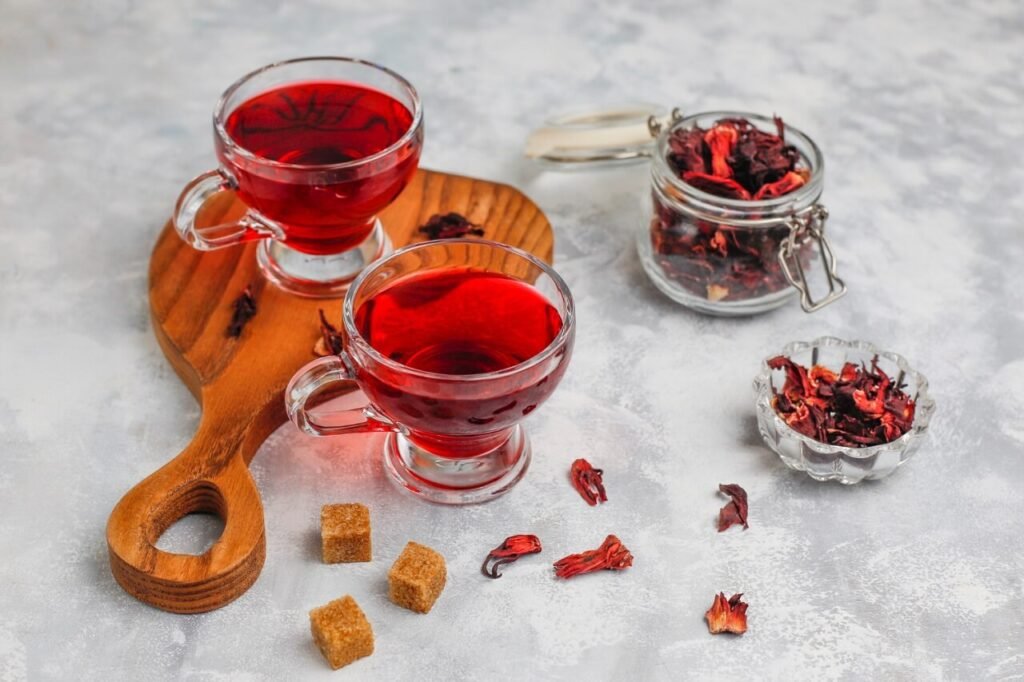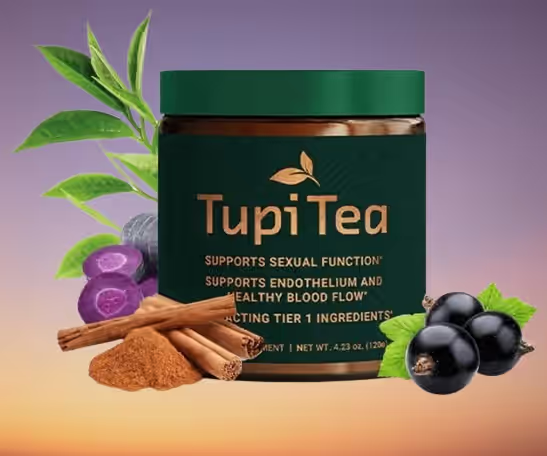Table of Contents
Rooibos tea, also known as red rooibos or rooibos herbal tea, has gained significant popularity around the world for its rich flavor and impressive health benefits. But one question remains on the minds of tea enthusiasts and health-conscious individuals alike: does rooibos tea contain caffeine? In a world where caffeine intake is often a concern, organic rooibos tea stands out as an appealing alternative. With its wide array of health benefits and low-risk profile, many people, including pregnant women, are turning to rooibos tea as a go-to beverage.
Rooibos tea may be caffeine-free, making it an excellent option for those who want to enjoy a warm, flavorful drink without worrying about caffeine-related side effects. In this article, we will not only explore the caffeine content in rooibos tea but also delve into whether rooibos tea is safe during pregnancy, and what, if any, rooibos tea side effects you should be aware of. View the rest of the article for additional insights.
Understanding Rooibos Tea: Origins, Characteristics, and Its Caffeine-Free Appeal
Red Bush Tea
When it comes to exploring the world of teas, few options are as intriguing and beneficial as rooibos tea. Known also as red bush tea, this herbal delight originates from the rugged landscapes of South Africa. The unique origins of rooibos tea play a significant role in its distinctive characteristics, setting it apart from other teas.
Rooibos Tea Origins
Rooibos tea is derived from the Aspalathus linearis plant, which thrives exclusively in the Cederberg region near Cape Town. This exclusive origin gives red rooibos its unique profile and cultural significance. Unlike traditional black or green teas, rooibos tea doesn’t contain caffeine, making it an ideal choice for those seeking a soothing beverage without the jitters. For tea connoisseurs who prefer a more artisanal approach, opting for loose tea varieties of rooibos can enhance the overall experience.
Characteristics of rooibos tea
The characteristics of rooibos tea are nothing short of captivating. It boasts a rich amber color and a naturally sweet flavor with subtle notes of honey and vanilla. These attributes make it not only delicious but also versatile; whether enjoyed hot or ice, plain or blended with flavors like citrus or mint, rooibos adapts beautifully to any preference.
Moreover, its health benefits further enhance its appeal. Packed with antioxidants and low in tannins compared to black tea, drinking rooibos can support overall wellness while being gentle on the stomach.
Herbal Tea From South Africa: Why You Should Drink Rooibos
Embracing rooibos tea means indulging in more than just a beverage—it’s an invitation to experience a piece of South African heritage that offers both taste and tranquility. Imagine sharing a cup of rooibos at family events or even presenting a beautifully packaged tin of rooibos tea as a gift to someone special. With no caffeine and a host of health benefits, discover for yourself why so many have fallen in love with this remarkable red bush treasure!
👉 Naturally Caffeine-Free – Sip the Best Rooibos Tea! 👈
Does Rooibos Tea Contain Caffeine? Insights from KQED on Its Caffeine-Free Nature
The short and definitive answer to this question is no, rooibos tea does not contain caffeine. Rooibos tea is naturally caffeine-free, making it an ideal beverage for people who are sensitive to caffeine, pregnant women, or anyone looking to cut back on their caffeine consumption. This sets it apart from other popular teas like black, green, and oolong, all of which contain varying amounts of caffeine.
For individuals who experience jitteriness, anxiety, or insomnia from caffeinated drinks, rooibos tea offers a calming, relaxing alternative without these undesirable side effects. It’s a perfect drink to enjoy late in the day or before bedtime without worrying about it affecting your sleep patterns, thanks to its zero caffeine levels.
Why Choose Rooibos Tea?
Rooibos tea is not only caffeine-free but also packed with antioxidants, making it a healthful choice. Here’s why you might want to include benefits rooibos in your daily routine
- Rich in Antioxidants: Rooibos tea contains high levels of antioxidants like aspalathin and quercetin, which help protect the body against free radicals and reduce oxidative stress.
- Supports Heart Health: Some studies suggest that the antioxidants in rooibos tea can help lower blood pressure and improve cholesterol levels, contributing to better heart health.
- Promotes Weight Loss: Rooibos tea may aid in weight management by helping to regulate blood sugar levels and improve fat metabolism, making it a good option for people looking to shed a few pounds.
- Improves Digestion: The anti-inflammatory properties of rooibos tea can help reduce stomach discomfort, bloating, and indigestion.
- Enhances Skin Health: Rooibos tea is often used in skincare products due to its anti-inflammatory and anti-aging properties. Drinking it regularly can lead to clearer, healthier skin.
👉 Bold Flavor, Zero Caffein – Try Premium Rooibos Now! 👈
Is Rooibos Tea Safe During Pregnancy? Evaluating Its Caffeine Content and Health Benefits

Pregnant women are often advised to limit their caffeine intake due to its potential risks to both mother and baby. So, is rooibos tea safe during pregnancy? The answer is yes. Since rooibos tea is free from caffeine, it’s considered a safe and beneficial option for pregnant women.
In fact, rooibos tea is a preferred choice for many women during pregnancy because it offers numerous health benefits without the worry of caffeine-related complications. The antioxidants in rooibos can support the immune system, which can be particularly helpful during pregnancy when the body’s defenses are naturally lowered.
Furthermore, rooibos tea is rich in calcium, magnesium, and fluoride, all of which are essential for fetal development. Drinking rooibos tea during pregnancy can contribute to healthy bone and teeth development in the unborn child while also helping the mother maintain her own bone density.
Rooibos tea can also aid digestion and reduce common pregnancy symptoms such as nausea, heartburn, and constipation. Its anti-inflammatory properties may help alleviate some of the discomforts associated with pregnancy, such as swollen joints and muscles.
Rooibos Tea Side Effects
While rooibos tea is generally considered safe and beneficial, it’s important to understand that, like any other substance, it can have side effects, especially if consumed in excessive amounts.
1. Allergic Reactions
Though rare, some individuals may experience allergic reactions to rooibos tea. These reactions may manifest as skin rashes, itching, or breathing difficulties. If you have a history of plant-based allergies, it’s best to consult a doctor before consuming rooibos tea.
2. Estrogenic Activity
Rooibos tea contains compounds that can mimic estrogen in the body. While this isn’t typically a concern for most people, individuals with hormone-sensitive conditions, such as breast cancer or uterine fibroids, should be cautious. If you have any underlying health conditions related to estrogen, it’s advisable to seek medical advice before making rooibos tea a regular part of your diet.
3. Interference with Chemotherapy
Some studies suggest that rooibos tea may interfere with certain chemotherapy drugs. If you are undergoing cancer treatment, it’s crucial to speak with your healthcare provider before consuming rooibos tea.
4. Liver Problems
There have been rare reports of liver toxicity associated with drinking large amounts of rooibos tea. Although this is not common, it’s worth noting that excessive consumption of any herbal tea could potentially lead to liver complications. Moderation is key to reaping the benefits of rooibos tea while avoiding any potential risks.
5. Low Iron Absorption
Like many other teas, rooibos can inhibit the absorption of non-heme iron from plant-based sources. If you are at risk of iron deficiency, you may want to limit your intake of rooibos tea or avoid drinking it during meals to ensure optimal iron absorption.
👉 Smooth, Earthy, and Soothing – Discover Rooibos Tea! 👈

How Much Rooibos Tea Can You Drink?
For most people, drinking rooibos tea in moderation—about 2-3 cups a day—is considered safe and beneficial. Pregnant women can also enjoy similar amounts without concern. However, it’s always a good idea to consult your healthcare provider if you’re pregnant or have underlying health conditions, just to be safe.
The Perfect Beverage for Sensitive Drinkers: Why Choose Rooibos Over Other Teas?
Sensitive to Caffeine Alternatives
For those who find themselves sensitive to caffeine, seeking soothing teas without the jittery side effects can be a challenging task. Enter Rooibos, a naturally non-caffeinated beverage that stands out as the perfect alternative for sensitive drinkers. Unlike traditional black or green teas, rooibos is caffeine-free, making it an excellent choice for those looking to enjoy a warm cup without the worry of sleepless nights or heightened anxiety.
Soothing Teas Without Caffeine
Rooibos tea offers an array of benefits that go beyond its lack of caffeine. Packed with antioxidants and rich in minerals like calcium and magnesium, it supports overall well-being while providing a calming effect on the body. Its gentle flavor profile also makes it versatile enough to be enjoyed at any time of day—morning or night—even when the weather turns cold—without disrupting your natural rhythm.
Non-Caffeinated Beverages Benefits
Choosing Rooibos over other teas means embracing a beverage that not only caters to your sensitivity but also enhances your lifestyle with its healthful properties. So why settle for less when you can savor the perfect balance of taste and tranquility with every sip? Make Rooibos your go-to choice, and experience the harmonious blend of flavor and wellness it brings to your daily routine. It also makes a wonderful gift for friends and family who value health and natural remedies.
Conclusion: Embrace the Caffeine Free Revolution with Rooibos Tea
Rooibos is naturally caffeine-free, making it an excellent alternative to traditional teas and coffee. It offers numerous health benefits, from improving digestion to enhancing skin health, and is particularly suitable for people who are sensitive to caffeine or those looking for a relaxing, non-stimulating beverage.
For pregnant women, rooibos tea is a safe and beneficial option, providing essential nutrients that can support both mother and baby. However, as with any herbal remedy, it’s important to consume rooibos tea in moderation to avoid any potential side effects, particularly if you have existing health concerns.
So, if you’re wondering, “does rooibos tea contain caffeine?” rest assured that it doesn’t. You can enjoy this delicious, antioxidant-rich beverage any time of day without the worries of caffeine-related side effects. Embrace the benefits that rooibos has to offer and join the caffeine-free revolution today!













